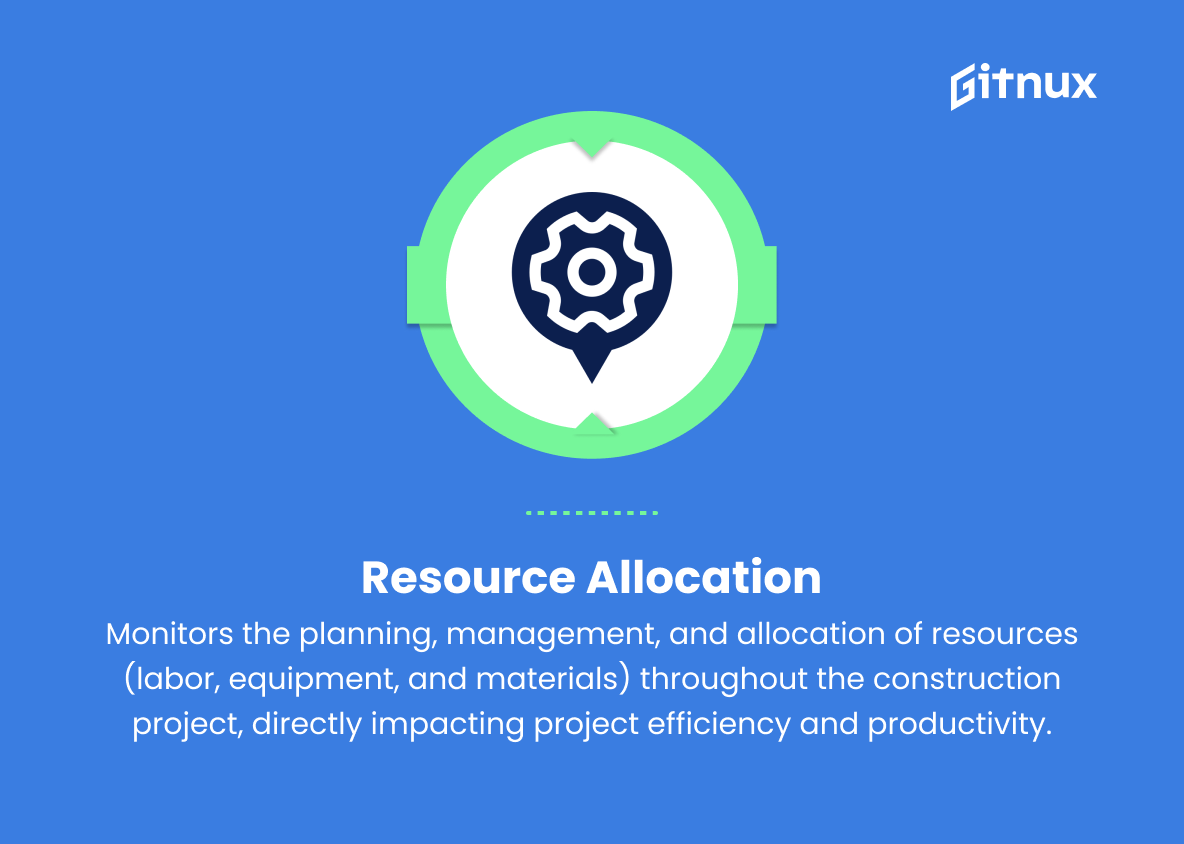In today’s competitive construction environment, the key to a successful project is to effectively manage and measure your performance. A critical component of this process is the use of key performance indicators (KPIs) to identify areas of excellence and pinpoint opportunities for improvement. With a myriad of variables influencing project outcomes, it is imperative for construction professionals to establish and monitor relevant KPIs to ensure their business stays on track for success.
This comprehensive blog post will delve into the world of construction KPIs, highlighting the importance of these valuable metrics and providing guidance on how to select and implement the right indicators to optimize your construction project management strategies.
Construction KPIs You Should Know
1. Project completion time
Measures the time it takes to complete a construction project from start to finish, ensuring timely and efficient execution.
2. Cost performance index (CPI)
Tracks the financial efficiency of a construction project by comparing the actual cost to the estimated cost, indicating how well the project’s budget is being managed.
3. Schedule performance index (SPI)
Compares the planned schedule and actual progress of a construction project. A score less than 1 shows that the project is behind schedule.
In today’s competitive construction landscape, the key to a successful project lies in effectively managing and measuring your performance.4. Change order frequency
Measures the number of change orders in a project, indicating how well the scope of the project was defined and managed.
5. Rework ratio
Compares the cost of rework or repairs to the total project cost, indicating the quality of workmanship and project management.
6. Accident frequency rate (AFR)
Monitors the number of accidents occurring over a specific time period, indicating the effectiveness of safety policies and procedures.
7. Subcontractor performance
Evaluates the quality and timeliness of work completed by subcontractors to assess their overall contribution to the project’s success.
8. Client satisfaction
Measures the satisfaction level of clients with the overall construction project outcomes, including quality, timeliness, and communication.
The construction industry relies on various key performance indicators (KPIs) to ensure successful project execution and to maintain competitiveness.9. Waste management
Monitors the amount of waste generated from a construction project, and the recycling or disposal practices, indicating environmental responsibility and cost-efficiency.
10. Labor productivity
Compares the work completed to the number of man-hours expended, indicating the efficiency and effectiveness of the workforce.
11. Material procurement efficiency
Measures the consistency in procuring the right quantity and quality of materials on time while sticking to the project budget.
12. Permit and regulation compliance
Monitors how well the construction project complies with all applicable permits and regulations, indicating legal and ethical performance.
13. Energy usage
Assesses the use of energy-efficient practices and materials in a construction project, indicating sustainability efforts and potential cost savings.
14. Workspace utilization
Tracks the effective usage of available workspace, maximizing the efficiency and minimizing unused areas.
15. Resource allocation
Monitors the planning, management, and allocation of resources (labor, equipment, and materials) throughout the construction project, directly impacting project efficiency and productivity.
Construction KPIs Explained
The construction industry relies on a variety of key performance indicators (KPIs) to ensure successful project delivery and remain competitive. Examples of these KPIs include project completion time, which focuses on a project’s efficiency and adherence to schedule. Cost Performance Index (CPI), Schedule Performance Index (SPI), and Change Order Frequency all emphasize the importance of accurate budgeting, planning, and effective scope management.
In addition, KPIs such as rework rate, accident frequency rate (AFR), and subcontractor performance are critical to maintaining quality workmanship, safety, and seamless collaboration among all project stakeholders. In addition, customer satisfaction provides insight into the overall effectiveness of communication, quality, and timeliness in completing a project, while waste management reflects a project’s environmental responsibility and cost efficiency.
Labor productivity, material procurement efficiency, permit and regulatory compliance, energy consumption, and workspace utilization are key KPIs that, when monitored and improved, can lead to greater efficiency and sustainability in construction projects. Ultimately, all of these KPIs contribute to a better understanding of the project’s resource allocation, which has a direct impact on productivity and overall project success.
Conclusion
In summary, construction KPIs play a critical role in the successful management and completion of construction projects. By monitoring and evaluating these key performance indicators, stakeholders can effectively track progress, manage resources, and mitigate risk. Most importantly, by focusing on critical KPIs such as safety, quality, time, and cost, project managers can increase customer satisfaction and build a strong reputation for their construction company.
Ultimately, a consistent and data-driven approach to measuring construction KPIs serves as the backbone for the industry’s continuous growth and improvement, paving the way for more efficient, sustainable, and innovative construction projects in the future.
















